Greg Levin's Blog
April 4, 2023
My Favorite Writing Quote Is the Absolute Worst
Years ago, I stumbled across a quote by Franz Kafka that instantly became my favorite writing quote of all time:
“A non-writing writer is a monster courting insanity.”
I found the quote to be brilliant, witty, dark yet relatable. You see, I’d always been the kind of writer who, after going more than a few days without writing, would start to lose his mind. I never became homicidal or anything like that; just a little moody on busy weekends and maybe a teensy bit psychotic during family vacations. In other words, quirky and fun!
I’d joke with my wife and friends, saying things like, “Wow, if I get like this after just a couple of days away from my manuscript, imagine how dangerous I’d be if I ever experienced an extended bout of writer’s block.”
And then something hilarious happened: I experienced an extended bout of writer’s block.
Actually, what I’ve been dealing with for the past year and a half is less a bout of writer’s block and more a bout of writer’s blah. That is, I’ve simply lost—or perhaps just badly misplaced—my passion for crafting fiction.
It all started around the time I moved from Austin, Texas to Sydney, Australia roughly two years ago. I initially chalked up my decreased writing mojo to the huge cultural and geographic change that came with the move. The way the toilet water down here in the Southern Hemisphere flushes in the opposite direction, I thought maybe the same thing was happening with my creative juices. I just needed to give them time to recalibrate, to get used to them flowing clockwise.
Adding to my problems was the stunning natural beauty here in Sydney. It didn’t exactly help restore my creativity or desire to write. I mean, c’mon—how in the hell can anyone be expected to crank out compelling stories filled with murder and violence and unspeakable cruelty when surrounded by breathtaking beaches and sea cliffs? Every morning I’d open my window shades, exposing all the sunlight and tropical birds and magnificent gum trees, then mutter to myself, “I’m f*cked.”
The longer I went without writing, the more I could feel the crazy creeping in. And I soon realized that, if I didn’t start putting up a fight, I was going to become a total cliché—just another writer who lost his mind and allowed himself to waste away to nothing.
As much as I had always loved the Kafka quote cited earlier, I was determined to not let it define me, to not allow it to run my life, to keep it from ruining the remainder of my days.
Yeah, that didn’t work.
The more I tried to convince myself that I could set writing aside and still live a normal, fulfilling, even happy life, the more evident it became that I might need to start wearing a helmet at all times and move into a ground-floor apartment with padded walls and dull cutlery.
Still, I persisted. I viewed every day as a new opportunity to prove Franz wrong, to show his ghost and the world that I could continue my sabbatical from fiction without succumbing to insanity.
How naïve of me.
Below are three key actions I took that serve to highlight my failure to fend off the CRAZY:
1) I started embracing the present moment. All the mental health websites and experts and Instagram hippies are always highlighting the importance of being present, of paying attention to and appreciating what’s going on in each moment you have the good fortune to be alive.
Huge mistake. Especially if you are a fiction writer—and double-especially if you are non-writing fiction writer. You see, embracing the present is the opposite of escape, and escape is the dream of all fictionistas. By focusing on present reality—on the people and things all around you at any given moment—you are quickly reminded that the world is a giant dumpster fire filled with chaos and mattress commercials and an utter lack of punctuation. The only way to emerge with your sanity intact is to create alternative realities and build imaginary worlds. And the only thing worse than being conscious of that fact is being conscious of the fact that you’ve lost your will or ability to do such building and creating.
Thus, the more I meditated and showed gratitude for my time on this planet, the more I spiraled—pining for the days when I used to be able to effortlessly spend hours immersed in a well thought-out murder scene.
2) I started focusing on others. They say the happiest people are those who make their lives about others and not just themselves. In my experience, that is true only if the other people you make your life about are imaginary.
Back when my life revolved around creating characters and helping them overcome tremendous conflict involving life-or-death stakes, I was in heaven. So, naturally, when my creativity and passion for writing suddenly went poof, so did my contentment, my zest for life, my reason for bathing. But rather than just wallow in misery and emotional anguish, I decided to embrace what Buddha and Jesus and other notable motivational speakers have been yammering on about for centuries: I decided to make my life about other people besides just myself and the despicable criminals I’ve lovingly brought into existence.
The trouble is, almost all of the “other people” I know are also writers and, unfortunately, they are productive and mentally stable ones at that. So, while I tried to put them first and offer them support and cheer them on, those bastards ended up being a constant reminder of just how much I’d fallen off as a writer, just how lost I was as an artist, just how many dozens of dollars a year more than me they were earning from their books.
I thought about making some new friends and trying to make them the focus of my life, but then I realized something very important, something Buddha and Jesus forgot to put at the forefront of their teachings: People are the worst.
3) I started looking for a full-time job. It wasn’t until I decided to seek gainful employment and try to carve out a nice career for myself outside of writing that I realized just how mentally ill I’d become. Sure, in the past I had toyed around with the idea of a traditional full-time job to replace the odd little side hustles that helped to bolster my fiction income, but I was never crazy enough to actually work on my resume or think a reputable company would ever look at it and go, “Now here’s a strong candidate!”
In theory, it made sense why a crime fiction writer who’d seemingly lost the will to write crime fiction would start thinking about ways to pay the bills without resorting to actual crime. But in reality, people whose top three areas of knowledge are poison methods, body disposal, and poison methods tend not to get invited in or back for interviews by a hiring manager whose name isn’t Lefty or Crusher or Trump.
So, there I was—unable to write crime fiction, and unable to see just how un-hirable years of only writing crime fiction had made me. Even worse, months and months of not writing had evidently left me too insane to remember just how crazy someone has to be to want to be hirable.
The good (or maybe the bad) news: I’ve slowly started to get my writing groove back.
The bad (or maybe the good) news: I recently landed a full-time job. (One that centers around my second biggest passion in life—skiing. More specifically, helping Australians plan ski/snowboard trips to Japan, North America, and New Zealand. I always knew I’d someday build a career in the snow travel industry while living in a city surrounded by beaches inside a giant sunburnt country.)
The (Rock) Bottom Line
So what does this all mean? It means Kafka wasn’t kidding around when he said what he said about non-writing writers and insanity. Now, I’m not saying writers should never quit or never take an extended break from writing; but just know that if you are a writer and you ever do stop writing—whether by choice or otherwise—you risk going so far off your rocker you’ll end up doing such dangerous and nonsensical things as embracing reality, putting others before yourself, and sending out resumes.
And I wouldn’t wish any of that on anyone—not even my worst enemy, or a good friend who sells more books than I do.
July 19, 2022
10 Dark Novels Filled with Heart and Hope
Whenever people ask me why I love reading and writing stories about serial killers, assassins, sociopaths and drug-addicts, I give them the obvious answer:
I’m a people person.
Okay, so maybe my obvious answer needs a little clarification.
I’ve always been a bit of a softie, a sucker for stories peppered with kindness, hope and humanity. And in my opinion, the best place to find such kindness, hope and humanity is in tales of darkness, death and destruction.
You might be wondering why I don’t just read and write heartwarming books about puppies and ducklings being best friends, but really, where’s the fun in that? Think about it. It’s sort of like how a tenth sunny day in a row doesn’t have nearly as much impact as a sunny day following two straight weeks of heavy rain and wind. And murder.
Guess what I’m saying is I like my kindness and compassion on the gritty side.
And with that in mind, today I’d like to pay tribute to ten books that are as dark and dangerous as they are heartfelt and hopeful.
Blueb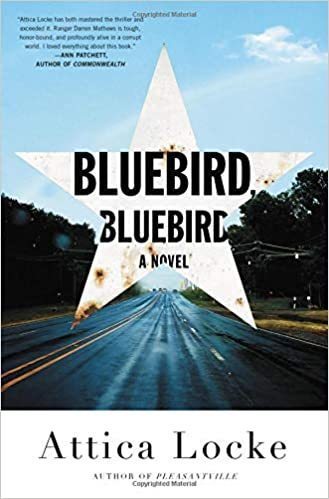 ird, Bluebird by Attica Locke. A remarkable rural noir novel that shines a light on race and injustice and love and hate in America. It tells the story of Darren Mathews, a Princeton-educated black Texas Ranger and his attempts to solve two murders that have set a small town on edge.
ird, Bluebird by Attica Locke. A remarkable rural noir novel that shines a light on race and injustice and love and hate in America. It tells the story of Darren Mathews, a Princeton-educated black Texas Ranger and his attempts to solve two murders that have set a small town on edge.
Never preachy or idealistic or predictable—Locke’s unflinching yet lyrical tale will both break and fill your heart in equal measure.
The Long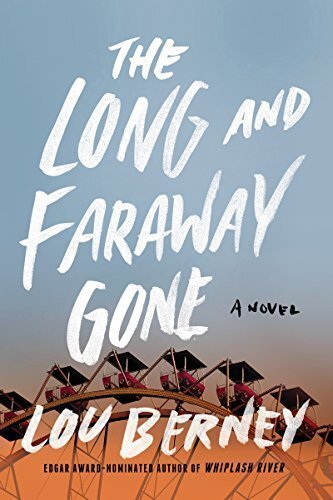 and Faraway Gone by Lou Berney. It took me two months to finish this book—not because it was hard to get through; rather because I didn’t want the mesmerizing story to end, didn’t want to say goodbye to its indelible characters.
and Faraway Gone by Lou Berney. It took me two months to finish this book—not because it was hard to get through; rather because I didn’t want the mesmerizing story to end, didn’t want to say goodbye to its indelible characters.
You’re really getting two novels for the price of one here, as the book follows two separate protagonists, showing how each of their lives have been shattered and reshaped by separate unsolved crimes that rocked their town twenty-five years earlier.
Rarely will you read a novel so haunting yet so poignant and yet also somehow so full of wit and humor. The world needs more books like this.
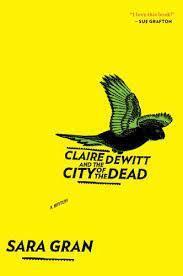 Claire DeWitt and the City of the Dead by Sara Gran. This novel about a terrifically flawed PI from Brooklyn trying to solve a mystery in post-Katrina New Orleans defies description or labels, but that’s not going to stop me from trying to describe or label it At times harrowing and heartbreaking, at times hilarious, and at times just weird, the book captures humans being human during horrific times—for better AND for worse.
Claire DeWitt and the City of the Dead by Sara Gran. This novel about a terrifically flawed PI from Brooklyn trying to solve a mystery in post-Katrina New Orleans defies description or labels, but that’s not going to stop me from trying to describe or label it At times harrowing and heartbreaking, at times hilarious, and at times just weird, the book captures humans being human during horrific times—for better AND for worse.
Through Claire DeWitt, Sara Gran gives us a highly compelling and entertaining noir tale as well as a gritty love letter to one of the most enigmatic cities in the U.S., if not the world. (Note: I was living in New Orleans in 2005 when Katrina rocked up and tried to ruin everything; thus this book hits all the feels for me.)
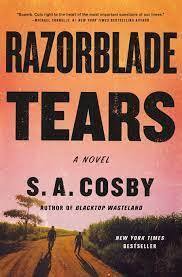 Razorblade Tears by S.A. Cosby. Good GAWD what a novel. Of course, I could say that about EVERY novel by Cosby, who has an inherent knack for making readers tremble and sweat then laugh then cry all within the span of a few sentences. All while making you think... and challenging your preconceptions about people and society.
Razorblade Tears by S.A. Cosby. Good GAWD what a novel. Of course, I could say that about EVERY novel by Cosby, who has an inherent knack for making readers tremble and sweat then laugh then cry all within the span of a few sentences. All while making you think... and challenging your preconceptions about people and society.
With Razorblade Tears, Cosby outdoes himself, bringing us a powerful and important story about two ex-con fathers—one black, one white— seeking revenge for the murder of their gay sons. Rarely will you read a novel as visceral, raw and violent as it is compassionate and poignant. Impossible to put down. Or to forget.
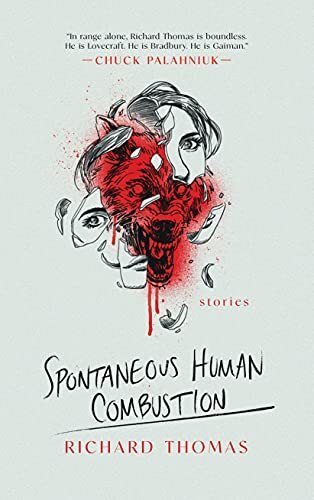 Spontaneous Human Combustion by Richard Thomas. Have a look at all the reviews for this stunning collection of short stories, and you’ll see words like “beautiful” and “human” used as often as you do “terrifying” and “devastating.” Eliciting that type of rave and dichotomous response from readers is no easy feat—unless all your readers happen to be bipolar or on acid.
Spontaneous Human Combustion by Richard Thomas. Have a look at all the reviews for this stunning collection of short stories, and you’ll see words like “beautiful” and “human” used as often as you do “terrifying” and “devastating.” Eliciting that type of rave and dichotomous response from readers is no easy feat—unless all your readers happen to be bipolar or on acid.
I believe Laird Barron (another master of fusing brutality and beauty) said it best in his review of Spontaneous Human Combustion: “Thomas masterfully combines noir and horror. He paints the beauty and the meanness of human life with an ease that belies how damned hard a trick it is to accomplish. Spontaneous Human Combustion is a bottle of the top shelf stuff—smooth, but it burns. Burns all the way to the bottom.”
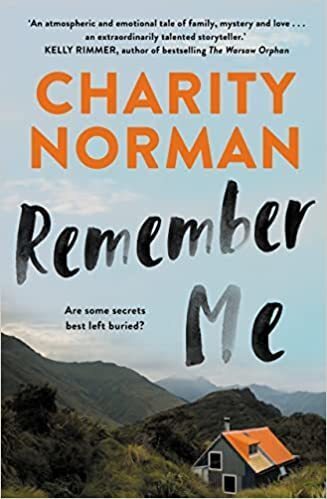 Remember Me by Charity Norman. Less a traditional crime novel and more a work of literary fiction with a mystery, Norman’s second novel is the beautifully told and heart-rending tale of a woman named Emily who returns to her native New Zealand to care for her father, whose dementia is rapidly advancing.
Remember Me by Charity Norman. Less a traditional crime novel and more a work of literary fiction with a mystery, Norman’s second novel is the beautifully told and heart-rending tale of a woman named Emily who returns to her native New Zealand to care for her father, whose dementia is rapidly advancing.
When Emily’s father hands her a sealed envelope and asks her not to open it until after his death, things start to get interesting. Even more so when his disease causes him to let fragmented revelations slip—revelations that offer a glimpse into a twenty-five-year-old unsolved missing persons case and threaten to tear the close-knit town apart.
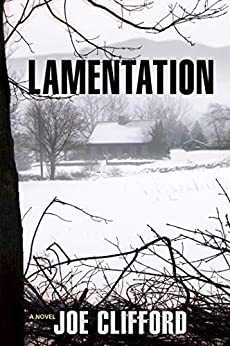 Lamentation by Joe Clifford. The first book in Clifford’s beautifully gritty and underrated Jay Porter series, Lamentation shows us just how strong the bond between two brothers can be—no matter how dangerous and desperate and chaotic sh*t gets. The protagonist will stop at nothing to save his drug addled alcoholic brother when the latter is arrested and, soon after, disappears … and readers will find themselves stopping at nothing to accompany Porter through every harrowing scene.
Lamentation by Joe Clifford. The first book in Clifford’s beautifully gritty and underrated Jay Porter series, Lamentation shows us just how strong the bond between two brothers can be—no matter how dangerous and desperate and chaotic sh*t gets. The protagonist will stop at nothing to save his drug addled alcoholic brother when the latter is arrested and, soon after, disappears … and readers will find themselves stopping at nothing to accompany Porter through every harrowing scene.
The only thing Clifford is better at than ratcheting up suspense and raising stakes in his stories is getting you to root for and truly care about even the most flawed, damaged characters.
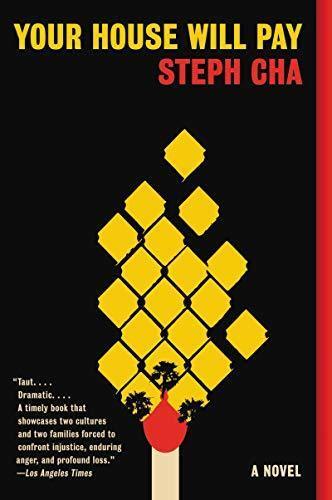 Your House Will Pay by Steph Cha. This book is so enthralling, fearless, and utterly human, I had no other choice but to include it on this list despite the author never following me back on Twitter. That, and on the off-chance Cha is as powerful and as confronting as her writing, I didn’t want to risk getting my ass kicked by her for snubbing her here.
Your House Will Pay by Steph Cha. This book is so enthralling, fearless, and utterly human, I had no other choice but to include it on this list despite the author never following me back on Twitter. That, and on the off-chance Cha is as powerful and as confronting as her writing, I didn’t want to risk getting my ass kicked by her for snubbing her here.
With Your House Will Pay, Cha gives readers a front-row seat to the racial injustice and tensions in modern-day Los Angeles—all in the form of a thrilling mystery that centers around two families struggling to come to grips with a shared, violent past. Not many writers could pull off such an ambitious literary high-wire act; in fact, very few would consider even trying.
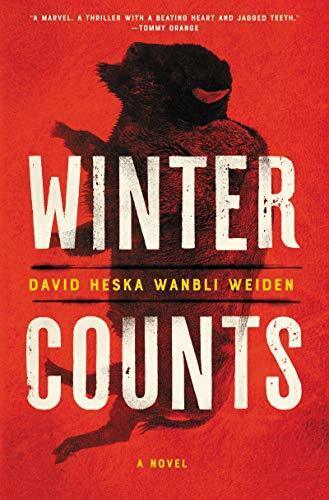 Winter Counts by David Heska Wanbli Weiden. This stunning debut novel is much more than just a gritty crime thriller; it’s a complex, layered saga that shines a light on some of the unique challenges faced by Native Americans in the 21st century.
Winter Counts by David Heska Wanbli Weiden. This stunning debut novel is much more than just a gritty crime thriller; it’s a complex, layered saga that shines a light on some of the unique challenges faced by Native Americans in the 21st century.
The protagonist—Virgil Wounded Horse—is as dangerous as he is endearing, and thus nearly impossible for readers not to follow through every twist and turn in this high-stakes, extremely suspenseful tale. Noble vigilantism, deadly drug cartels, and unflinching questions about money and power among tribal leaders make this one of the freshest, fiercest books to come out in years.
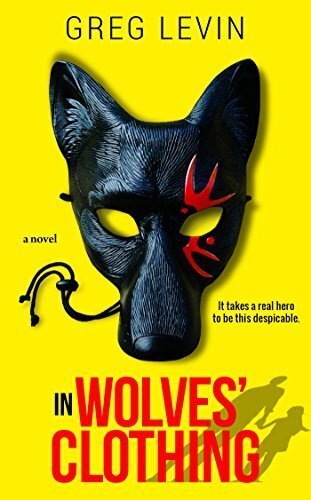 In Wolves’ Clothing by… ahem, ME. I rarely if ever include my own titles in posts on books people need to read … which probably explains why not enough people feel the need to read my books.
In Wolves’ Clothing by… ahem, ME. I rarely if ever include my own titles in posts on books people need to read … which probably explains why not enough people feel the need to read my books.
I’m including it not just to blatantly self-promote myself; the truth is, I poured my heart, marrow and soul into the book, and I honestly believe it deserves a place on any “Dark Novels Filled with Heart and Hope” list. It is, after all, the story of a guy who risks his life every week to help rescue young girls from the bowels of sex trafficking.
Don’t just take my word for it; here’s what Publishers Weekly said of In Wolves’ Clothing in a starred review upon its launch:
“Levin movingly conveys the horrors of sex trafficking in this effective thriller. He provides a window into one of the world's darkest underbellies, while somehow managing to insert appropriate lighter moments. This author deserves a wide audience.”
By the way, I’m getting a tattoo of that entire blurb on my back this week. So don’t be surprised if, at the next author event I attend, you see me shirtless. Of course, that could also simply mean I managed to score a few extra drink tickets.
What are some of your favorite dark novels filled with heart and hope?
April 26, 2022
One-Star Assaults: The Best Bad Reviews of Critically Acclaimed Crime Novels
The one-star book review. For some authors, a single star from a reader is enough to send them into a downward emotional spiral from which they never recover. For more self-assured and experienced authors, such a hateful review is a sign they’ve arrived, a cause for celebration, a reason to hire a security team.
They say a one-star book review says much more about the reviewer than about the actual book—especially if the book is, by wide consensus, very good or great. When a reader flings a single star at a novel that averages four-plus, it generally indicates the reader just got dumped by a lover or is trying to quit smoking. Sometimes, a giver of one-star is simply an illiterate Internet troll incapable of elaborating on the teribullness of the buuk they found so unreedabull. Occasionally, however, a one-star review of a great book is well-written, even convincing—delivered by a self-described literary genius who refuses to conform to popular opinion and instead feels compelled to point out how and why the book in question is not only highly overrated but complete drivel.
Regardless of the accuracy of or motivations behind one-star book reviews, they are an absolute joy to read. And since we can all use a little more joy in our lives, today I’d like to share the most scathing, sardonic as well as idiotic reviews of some of the most critically acclaimed and beloved books in the crime fiction world. (To enhance your reading pleasure, I’ve kept all the reviewers’ typos intact.)
Enjoy!
And Then There Were None by Agatha Christie
"Don't buy. Nothing special. Another waste of time like the books of Charles Dickens. I gave Agatha's best book a chance and it disappointed big time."
The Big Sleep by Raymond Chandler
"I kept hoping I find the reason it's so well liked, but NO I would not recommend it to anyone. It was way too long & wordy with descriptions & geesh I guess maybe some folks just like all of the in my opinion long drawn out descriptions of it."
The Day of the Jackal by Frederick Forsyth
"Too much unnecessary detail makes reading it quite difficult. I really don't want to know, for example, how someone's flatulence sounded and lasted for how long and whether they lifted their leg to do it or sat on the potty. The details in the book are in similar tones.
Bluebird, Bluebird by Attica Locke
"Liberal fiction, no thanks. I tried enjoying the book but the constant cheap shots at Republicans like Ted Cruz got old and I stopped. BTW, having owned a farm in East Texas, I can say the book certainly takes liberties with the way East Texas really is. Fiction, this book certainly is."
The Spy Who Came in from the Cold by John le Carré
"Yes, it's complicated. You never know who are the good guys and who the bad. Even after you've be read the last word and in introspection it's not at all clear what has happened, why, or how you could have so foolishly wasted your time reading this trash."
The Black Dahlia by James Ellroy
"I know its set in a different era, but I found the content difficult to cope with. The way characters were described, it was just too negative. I love to read and usually finish all books I start, but I had to stop reading this. It made me feel uncomfortable. I don't like to be negative, but I felt I needed to express my opinion on this one."
In the Woods by Tana French
"This author needs a editor. The information says its 612 pages long, that's 400 more pages than necessary to tell the tale. I'm sorry I wasted so much time. I would have appreciated and ending to the detective's story. I won't be reading anything else by this author."
Still Life by Louise Penny
"The author did not do adequate research to understand either hunting or archery, both of which are critical parts of the plot line. When a supposed character that hunts butchered the description of what a "recurve" bow is I almost gave up. I probably should have. If you are uninformed about, or prejudiced against, hunting then you won't mind the general tone of the book. Just don't use it to learn about archery."
Mystic River by Dennis Lehane
"Not grrat. Had to buy this from a class. It wasn't good at all, so I wouldn't buy this unless it is required for you."
The Turn of the Key by Ruth Ware
"The reader is way, way over the top with her drama."
Devil in a Blue Dress by Walter Mosley
"BORING I IT WAS POORLY WRITTEN, DID NOT LIKE CHARACTER, FILTHY WOULD NOT TRY TO FINISH WHAT A WASTE OF MONEY AND MORE IMPORTANT TIME"
Along Came a Spider by James Patterson
"i wanted the paperback not the kindle"
The Talented Mr. Ripley by Patricia Highsmith
"the problem is in those stupid covers where they have to mention that this is now a major motion picture staring this and that stupid actor/actress. its just dumb. really anoying. book is great."
Pronto by Elmore Leonard
"I finally finished the book. So glad it's over. I'll never buy another in this series. Liked the television show."
A Judgement in Stone by Ruth Rendell
"Dear Lord! What an absolutely dreadful book. I just wanted those poor characters to be killed quickly so the book would be over. This was chosen by someone in my book club. The bad people in the story are mousy, the good characters in the story are mousy. The community at large is mousy. It never gets better and could only get over and done with. I hate to complain about things these days but this miserable story's highlight is the title. Once you open up the book it's all downhill from there."
The Snowman by Jo Nesbø
"Save yourself! Mow the grass! First and definitely last time I will spend money on this author. I'm scratching my head wondering why anyone would ever bother buying a book that this fellow wrote; disconnected, slow, boring, and far too easy to determine who the "bad" guy was - If you find yourself tempted to buy a book written by this author, take a deep breath, get control of yourself, and buy one written by Michael Connelly or Lee Childs - I know you want to give me a big hug but maybe not."
The Poet by Michael Connelly
"Too many stupid people. What is going on with all those stupid policemen, FBI, and the whole lot of civilians? It seems that one cannot find a book where the hero is not an appalling individual that you just cannot bring yourself to sympathize with? This particular one - total A-hole. And on the top of it all, I really do not want to read about his love/sex life. Ugh!."
Killing Floor by Lee Child
"Several instances where God's Name is misused. If it wasn't for this I would have loved reading the rest of the series."
The Girl with the Dragon Tattoo by Stieg Larsson
"Not like Gillian Flynn. I didn’t like it."
Gone Girl by Gillian Flynn
"I'm reviewing the book not the movie. I might be alone here, but I hated it. My friend kept recommending it, so I thought why not? I kept reading it to the end because it was interesting"
Mr. Mercedes by Stephen King
"Not a normal stephen king book. I was 30 mins from end and knew it had to take a twist....nope the psycho talked, that's it :( disappointed!"
Resurrection Men by Ian Rankin
"haven't read it yet so leave me alone"
Tell No One by Harlan Coben
"Trash! This book bears the same relationship to a good crime novel as does news in the Tabloid you pick up at your grocery check out the quality of news in New York times and the WSJ"
Pretty Girls by Karin Slaughter
"The most disturbing book I have ever read. It started off so good then it went down a very dark path and kept getting worse. I wish I had never read this book, it was so disturbing. Do not recommend."
The Silence of the Lambs by Thomas Harris
"Misleading. Not a single lamb"
Feel free to share some of your favorite one-star book reviews in the comments section below. Also, have YOU ever written a one-star review of a book? If so, was the book one of MINE? If so, what’s your address?
March 23, 2022
Heroes Schmeroes—Eight Literary Villains We'll Never Get Enough of
One of the absolute best experiences for any fiction fanatic is discovering a character who’s the absolute worst. There’s just something so delightful about a well-conceived psycho- or sociopath hell-bent on ruining a protagonist’s life. Call me a romantic.
It’s not exactly clear what drives our fascination with villains and anti-heroes. Perhaps it’s that we like to meet people—even if imaginary—who make our own flaws, issues and neuroses seem like commendable virtues in comparison. Or it could be that deep down we are just as sick and disturbed as the dangerous antagonists we hate to love and love to hate.
Whatever the reason, “bad guys” are the best. Here are eight that none of us would be caught dead with though can’t seem to get enough of.
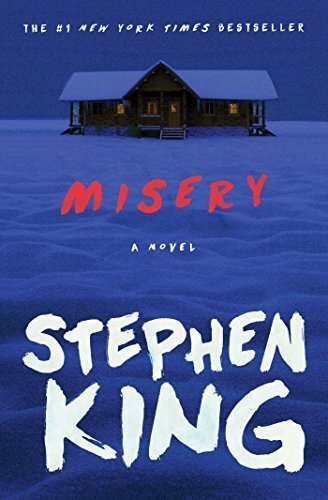 Annie Wilkes from Misery by Stephen King. Annie Wilkes both terrifies me as a reader and gives me something to strive for as an author. I mean, what writer wouldn’t want a reader devoted enough to a character to abduct and very nearly kill its creator?
Annie Wilkes from Misery by Stephen King. Annie Wilkes both terrifies me as a reader and gives me something to strive for as an author. I mean, what writer wouldn’t want a reader devoted enough to a character to abduct and very nearly kill its creator?
That said, Annie is not somebody you want to upset and definitely not somebody you want to complain to about missing typewriter keys. Not since my grandfather four scotches in on Thanksgiving several decades ago has anyone handled an electric carving knife as creatively and brutally as Annie.
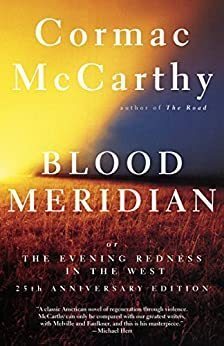 Judge Holden from Blood Meridian by Cormac McCarthy. No character has given me more nightmares, caused me more physical and mental distress, than Judge Holden. And for that I’m eternally grateful. Standing seven feet tall and completely lacking any hair, pigment or remorse, Judge Holden makes Cormac McCarthy’s other renowned antagonist—the terrifying Anton Chigurh from No Country for Old Men—look like Mary Poppins. The former is evil personified—perhaps even Satan himself, as some literary scholars have suggested—and yet he makes it nearly impossible for readers to stop turning pages.
Judge Holden from Blood Meridian by Cormac McCarthy. No character has given me more nightmares, caused me more physical and mental distress, than Judge Holden. And for that I’m eternally grateful. Standing seven feet tall and completely lacking any hair, pigment or remorse, Judge Holden makes Cormac McCarthy’s other renowned antagonist—the terrifying Anton Chigurh from No Country for Old Men—look like Mary Poppins. The former is evil personified—perhaps even Satan himself, as some literary scholars have suggested—and yet he makes it nearly impossible for readers to stop turning pages.
So, if any of your reader friends ever say, “If only there were a novel featuring an immense, murderous albino man as adept at killing and torture as he is at languages, dancing and diplomacy,” be sure to whip out a copy of Blood Meridan and exclaim, “Have I got the book for you!”
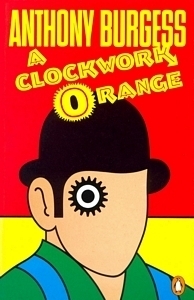 Alex from A Clockwork Orange by Anthony Burgess. You know how when a friend charms you with such elegant, poetic, lyrical language you almost fail to realize what they’re describing are terrible acts of violence they’ve carried out? No? Well then, allow me to introduce you to Alex from A Clockwork Orange. He’ll have you at, “And, my brothers, it was real satisfaction for me to waltz—left two three, right two three—and carve left cheeky and right cheeky, so that like two curtains of blood seemed to pour out at the same time, one on either side of his fat filthy oily snout in the winter starlight.”
Alex from A Clockwork Orange by Anthony Burgess. You know how when a friend charms you with such elegant, poetic, lyrical language you almost fail to realize what they’re describing are terrible acts of violence they’ve carried out? No? Well then, allow me to introduce you to Alex from A Clockwork Orange. He’ll have you at, “And, my brothers, it was real satisfaction for me to waltz—left two three, right two three—and carve left cheeky and right cheeky, so that like two curtains of blood seemed to pour out at the same time, one on either side of his fat filthy oily snout in the winter starlight.”
It’s hard to imagine ever having sympathy for a nihilistic teenager whose favorite hobby is ultra-violence. Until you read this book. As horrific and despicable as Alex is, I dare you not to feel for him at least a little once you get to the part where he’s imprisoned and forced to undergo aversion therapy that strips him of free will and any sense of self. I mean, c’mon—what’s sadder than a psychopath who lacks agency?
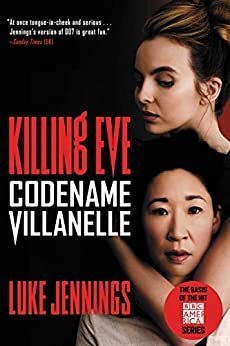 Villanelle from Codename Villanelle by Luke Jennings. That’s right, the irresistibly sadistic cold-blooded assassin from the smash TV series Killing Eve was a literary character before wowing and terrifying us on the small screen. (Author Luke Jenning’s novel Codename Villanelle is actually a compilation of four novellas published between 2014-2016.)
Villanelle from Codename Villanelle by Luke Jennings. That’s right, the irresistibly sadistic cold-blooded assassin from the smash TV series Killing Eve was a literary character before wowing and terrifying us on the small screen. (Author Luke Jenning’s novel Codename Villanelle is actually a compilation of four novellas published between 2014-2016.)
Villanelle is vicious, duplicitous, psychotic, incapable of remorse, and highly skilled in the art of ending lives. She’s got it all! And even though we know how incredibly dangerous and deadly she is, we still can’t help falling in love with the idea of her and Eve (the story’s protagonist and Villanelle’s arch nemesis) falling in love.
We’re SICK, I tell ya.
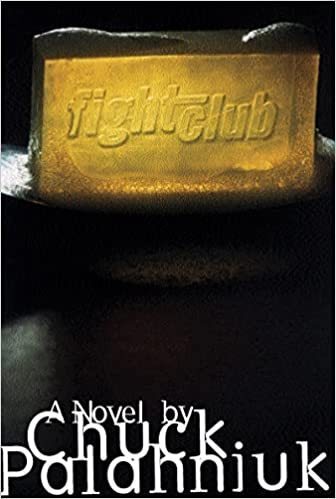 Tyler Durden from Fight Club by Chuck Palahniuk. I almost didn’t include Tyler Durden in this list because it’s hard for me to call one of my favorite characters of all time a “villain.” But yeah, technically he is the antagonist to the book’s protagonist, even though he’s also the protagonist’s best pal, and also lives inside the protagonist’s mind.
Tyler Durden from Fight Club by Chuck Palahniuk. I almost didn’t include Tyler Durden in this list because it’s hard for me to call one of my favorite characters of all time a “villain.” But yeah, technically he is the antagonist to the book’s protagonist, even though he’s also the protagonist’s best pal, and also lives inside the protagonist’s mind.
Hey, we’ve all had difficult friends.
As far as villains go, Tyler Durden is arguably one of the most passionate and heroic, and one that millions of readers (male readers, anyway) secretly long to be just like. Sure, he’s volatile and violent and dead-set on breaking the world, but in a good way. Sort of. If you take away his penchant for explosives and underground melees and compound fractures—and you discount the fact that he’s merely a figment of a highly unstable fictional person’s mind—Tyler’s the kind of guy you’d want as your best man. Or pallbearer.
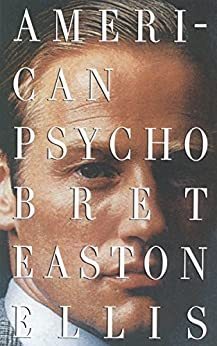 Patrick Bateman from American Psycho by Bret Easton Ellis. He is far and away the most despicable and unlikeable character on this list, which is why I know you’re going to keep reading.
Patrick Bateman from American Psycho by Bret Easton Ellis. He is far and away the most despicable and unlikeable character on this list, which is why I know you’re going to keep reading.
Throughout the controversial and infamous novel, Patrick Bateman commits unspeakable acts of violence, misogyny and, perhaps worst of all, investment banking. But there’s something, dare I say, oddly satisfying about being inside the mind of a psychotic homicidal narcissistic yuppie killing it in New York City in the late 1980s.
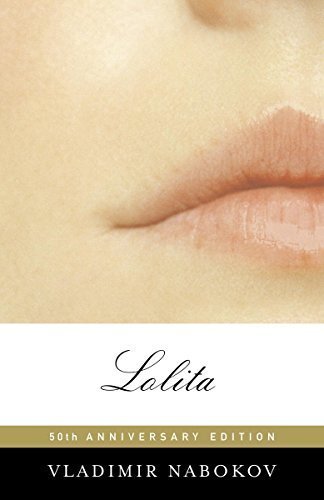 Humbert Humbert from Lolita by Vladimir Nabokov. On second thought, this guy—not Patrick Bateman above—is the most despicable villain on this list. But here’s what’s terrifying: He’s also perhaps the most likeable.
Humbert Humbert from Lolita by Vladimir Nabokov. On second thought, this guy—not Patrick Bateman above—is the most despicable villain on this list. But here’s what’s terrifying: He’s also perhaps the most likeable.
That’s the paradox of Humbert Humbert. You’ll never encounter a main character more educated and erudite, more cultured and refined, more romantic and charming and full of wit. It’s all almost enough to distract you from the fact that he’s a pedophile. For every page that readers find themselves rooting for and riveted by him, there’s one that leaves them repulsed—not only by Humbert but also by themselves for traveling with him.
Absolute enchantment and severe self-loathing—what more could you hope to get from a book?
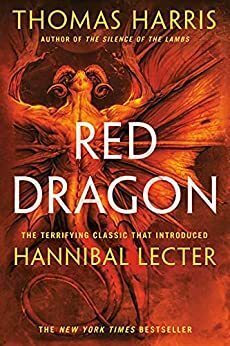 Hannibal Lecter from the “Hannibal” series (Red Dragon, Silence of the Lambs, et. al.) by Thomas Harris. A brilliant and successful psychiatrist who just can’t seem to kick his pesky serial killing and cannibalism habit. Um, YES please.
Hannibal Lecter from the “Hannibal” series (Red Dragon, Silence of the Lambs, et. al.) by Thomas Harris. A brilliant and successful psychiatrist who just can’t seem to kick his pesky serial killing and cannibalism habit. Um, YES please.
Like Humbert Humbert from Lolita, Hannibal Lecter wins us over with his eloquence and charm. But where Humbert is a human consumed by illicit love, Hannibal loves to illicitly consume humans.
Boom!
mic drop
Who are some of YOUR favorite villains and anti-heroes from literature? Or even better, from your own family?
February 8, 2022
The Ease of Being an American Author Down Under
For those of you who don’t yet know—or whom I specifically didn’t tell because I owe you money—I moved from Austin, Texas to Sydney, Australia last May. As excited as I was about the huge transition, I was concerned it might somehow have a negative impact on me as a writer. My biggest fear initially was informing my NYC-based literary agent of the move, as I thought she might drop me as a client upon learning I was moving to a country that spells so many words wrong on purpose. But she was not only supportive, she was a little jealous—probably because she’s a crime fiction enthusiast and would kill to live in a beautiful land with such a rich history of felony and imprisonment.
Turns out most of my other concerns and fears about the move were unfounded, as well. In fact, I’ve had pretty much no issues adapting to life as an American author Down Under. Here are the five main reasons why:
1) Just like in the US, nobody’s heard of me or my books down here. Imagine how jarring it would be for me if I had to contend with throngs of raving fans every time I left the house here in Australia. Thank goodness I’m able to go to restaurants and the liquor store and the psychiatrist and back to the liquor store without anyone knowing or caring who the hell I am. Just like back home. And because everyone speaks English here, there’s no language barrier to contend with whenever I meet people and they tell me they’ve never heard of me or of any of my books and have no intention of reading them.
2) Despite my geographical distance from my agent and American publishers, rejection notifications get here just as quickly. You’d think being so far away from everyone who has the power to make my dreams come true would result in delays in my novels and stories getting rejected, but NOPE. Thanks to modern telecommunications and digital technology, each “NO” gets to me here in Sydney just as fast as each did back in the States. Man, I love not having to wait any longer than necessary to have my soul and creativity crushed!
3) The liquor in Australia works just as well as the liquor in the States. I don’t know where I’d be without a fun way to fend off feelings of artistic failure and futility on a near-daily basis, so you can imagine how relieved I was to find that the vodka and bourbon here in Oz function pretty much identically to that found in the U.S. Sure, such spirits are more than double the price down here, but that is actually a good thing, as it has inspired me to turn to a life of crime, which provides me with invaluable experiences and wonderful fodder for future books.
4) My writing office here has the same number of solid, punchable walls as my old writing office did. I can’t express how important it is to be able to slam my head and fists against something hard whenever the words and ideas aren’t flowing. Without such walls, my slamming efforts would entail me violently lashing at nothing but air, which can cause tears in rotator cuff and neck muscles—muscles that are essential for sitting and staring at blank pages during writing sessions.
5) My neighbors here in Sydney are no less leery of me than my neighbors have been everywhere else I’ve lived as a writer. Nothing makes me feel more at home than being surrounded by people who do everything they can to avoid contact with me due to my questionable actions and behavior. Hard to tell if it’s how I act out murder scenes alone in my office before writing them that’s got the folks in our apartment building keeping their distance, or if it’s simply how I get drunk and head-butt walls while cursing the publishing industry and/or my characters that has my neighbors ducking away. Regardless, I’m extremely grateful to them.
I don’t have any clever little notes to add to the end of this post, so allow me to simply request that you buy my damn books—and make your friends do the same. Thanks, and G'day maaate!
January 11, 2022
I Predict Big Fiction(al) Success for Me in 2022
I recently took a look back at my previous “New Year” blog posts—featuring my predictions and resolutions regarding me and my writing career—and doing so revealed something very interesting:
I suck at the future.
Not only have none of my predictions come true, I’ve failed to make good on roughly 99.637% of my New Year’s resolutions. Now, that wouldn’t be so discouraging if those predictions and resolutions had been extremely lofty and ambitious ones. But they weren’t. In my mind, most were actually quite achievable with some hard work and a little luck. They were practical prognostications and promises grounded relatively firmly in reality.
Turns out, that’s the problem.
Reality? Practicality? Those aren’t my strengths—I’m a fiction writer, for chrissakes. I need to be going BIG with my predictions and personal goals. HUGE, in fact. I need to lose complete and utter touch with reality, not ground myself in it.
And so, it is with great pride and delusions that I bring you my predictions and resolutions regarding my writing career in 2022.
I will sell enough books to build a mansion big enough to house James Patterson’s mansion and Jonathan Franzen’s ego. The home will be made out of titanium-reinforced hardcover copies of Fight Club and will feature twenty-five bedrooms, ten writing offices, five whiskey bars, and another twenty-five bedrooms. Everything will be powered by a combination of solar energy and Jeff Bezo’s rocket fuel.
I will win so many major writing awards, the Nobel Prize for Literature will be renamed “The Greggy.” I, of course, will decline to accept the inaugural “Greggy” award—to show off my remarkable humility.
Each of my existing novels will be made into a movie, a TV series, a Broadway play, and a children’s book. Due to the violence and the crime and the adult themes my stories contain, each of the aforementioned projects will be rated “M for Mature Audiences”—with the exception of the children’s books, which will feature cute talking unicorns and teddy bears to help teach all the little tykes about murder and kidnapping in a safe and fun way.
Jimmy Kimmel, Jimmy Fallon and Stephen Colbert will have a death-match to determine which of them gets to host me on their show first. The bloody fight-to-the-death will become the basis of my next novel, which I will launch live on The Ellen DeGeneres Show.
Lee Child, Gillian Flynn and Michael Connelly will each beg me to ghostwrite their next novel. Upon learning they can’t afford my ghostwriting fee, they’ll each ask if I can at least write a nice blurb for their book. Upon learning I’m taking a break from blurbing books, they’ll each ask if I can at least be the godfather of their grandchildren.
A small majority of my readers will remember to leave a review after finishing one of my books. Admittedly this one’s a bit of a stretch, but hey, a boy can dream, right?
Here’s hoping YOUR 2022 is as unbelievable as mine.
HAPPY NEW YEAR!
December 14, 2021
Santa Claus Is Robbing the Town
I’m as big a sucker for Christmas and the holidays as the next guy. Maybe even bigger. Just ask the neighbors in my apartment building here in Sydney—they’ll confirm I’ve been listening and singing along to carols since, like, August. (I’m surely the only Jew on the planet to do so.) Still, as much as l love getting caught up in the merriment and joy and love so prevalent this time of year, sometimes I can’t keep my criminal mind from wandering over to the dark side during the holiday season.
The good news is I’ve managed to curb my more sinister side enough to keep me from writing an entire novel featuring Christmastime crime and murder. The bad news is I couldn’t stop myself from taking a beloved Christmas carol and turning it into a tale of thievery and revenge.
I’m sorry and you’re welcome.
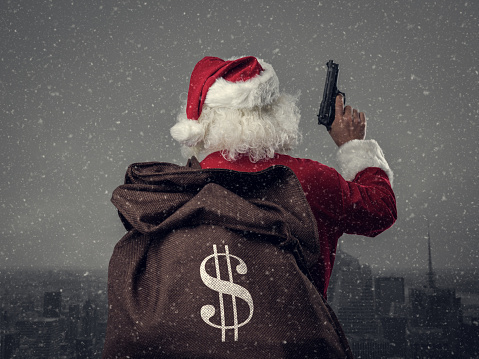
Santa Claus Is Robbing the Town
You better watch out
You better not snitch
The last guy who did is dead in a ditch
Santa Claus is robbing the town
He’s making a list
He’s checking it twice
He’s pulling off one huge holiday heist
Santa Claus is robbing the town
He sees you when you’re sleeping
And he knows when you’re awake
He’s pissed you don’t believe in him
So your life is now at stake
Hey!
You better watch out
You better not try
To call the damn cops or you’re gonna die
Santa Claus is robbing the town
He sees you when you’re sleeping
And he knows when you’re awake
He says if you stand in his way
He’ll bury you by the lake.
Yay!
You better watch out
You better give thanks
Santa just came to rob houses and banks
Santa Claus is robbing the town!
B O N U S C A R O L !
(I had planned on writing/posting just one cri-fi carol, but hey, Christmas is a time for giving… readers serious concerns about my mental stability.)
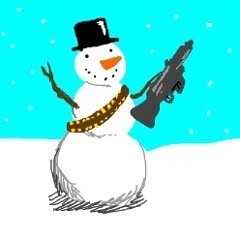
Frosty the Hitman
Frosty the hitman
Was a deadly, icy pro
With his chilly name and his killer aim
Frosty made a lot of dough
Frosty the hitman
Is a fairytale they say
But I know the truth—damn the man could shoot
And he’d take your life for pay
There must have been some magic in that rifle scope he used
For even from 500 yards every bullet would come through
Oh!
Frosty the hitman
Knew the Feds were on his tail
So he took his gun and went on the run
Cause he knew he’d melt in jail
Frosty the hitman
Had a blast while off he sped
But the cops were fast and they shot his ass
Frosty’s snow could not stop lead.
HAP P Y H O L I D A Y S T O A L L, A N D T O A L L
A G O O D H E I S T !
*No beloved giant elves or snowmen were harmed in the making of these carols
November 22, 2021
Gratitude as a Flotation Device
I almost skipped my annual Thanksgiving-related blog post this year, for a number of reasons. Firstly, I’m exhausted—still recovering from/adjusting to my gargantuan move to Australia six months ago, as well as the temporary (hopefully) loss of my creative spirit, which apparently got held up in Customs upon my May arrival in Sydney. Secondly, Thanksgiving isn’t celebrated in Australia, so I figured I could get off on a technicality.
But then it hit me: Thanksgiving isn’t about geography, and it certainly isn’t about loopholes or doing the bare minimum or self-pity. It’s about gratitude. It’s about appreciating just how fortunate you are to be walking around and breathing above ground even if there are days when you feel you’re drowning.
And here’s the beautiful thing about gratitude—it floats in anything. All you need to do is grab onto it to keep your head above water.
So, sure, there may be some waves knocking me around, some baby sharks circling, but they don’t distract from the fact I have a helluva lot to be grateful for.
Below are the five things topping that list:
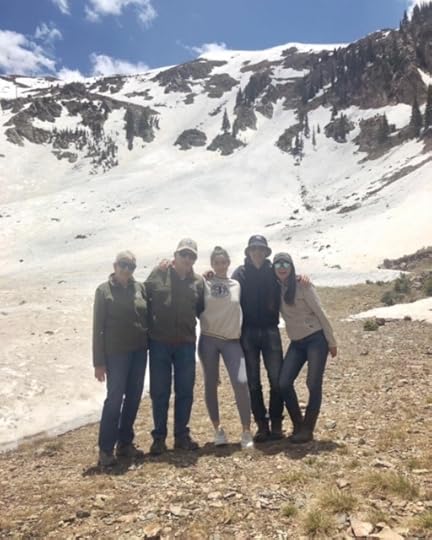 My Family. I don’t know where I’d be or what I’d do without the love and support of my wife, Miranda. And my daughter, Leah. And my parents, Lynne and Stu. And my older brother, Todd. (Not to mention my wonderful in-laws!) Living in the same household or even just having regular phones calls with a moody, anxious, somewhat delusional writer like me is challenging, to say the least. “Would you people three rooms over please stop breathing so much—I’m trying to write a novel in here!” Or “I know we haven’t spoken in weeks, but can you call back later—I’m very busy disposing of an imaginary body.”
My Family. I don’t know where I’d be or what I’d do without the love and support of my wife, Miranda. And my daughter, Leah. And my parents, Lynne and Stu. And my older brother, Todd. (Not to mention my wonderful in-laws!) Living in the same household or even just having regular phones calls with a moody, anxious, somewhat delusional writer like me is challenging, to say the least. “Would you people three rooms over please stop breathing so much—I’m trying to write a novel in here!” Or “I know we haven’t spoken in weeks, but can you call back later—I’m very busy disposing of an imaginary body.”
The hell that I put my characters through is a picnic compared to the hell I put my loved ones through. Because the hell I put my loved ones through is real, despite the fact that I do it in the name of fiction—fiction that in most cases relatively few people will ever read. Fiction that rarely pays the bills—or even a bill. Fiction that … is fiction. So the fact that my family still loves me and accepts me for the freak I am is a highly thankable offense.
 My Dog. I was going to include my dog, Wallaby, in the “Family” section above, but he’s so damn beautiful and such a daily source of joy and unconditional love, I just had to give him his own subhead—even though doing so puts me at real risk of having my face eaten by my cat, Dingo.
My Dog. I was going to include my dog, Wallaby, in the “Family” section above, but he’s so damn beautiful and such a daily source of joy and unconditional love, I just had to give him his own subhead—even though doing so puts me at real risk of having my face eaten by my cat, Dingo.
My tremendous gratitude for Wallaby was made all the stronger very recently, when he had a frightening brush with death—courtesy of the Australian paralysis tick Miranda found embedded in his neck. (I’ll spare you the details; however, if you’re curious, you can google the name of the venomous parasite in question, you sick bastard.) Thanks to Miranda’s discovery and our vet’s skillful administration of the antiserum, Wallaby has made a full recovery and will live to see many more days of us spoiling the shit out of him.
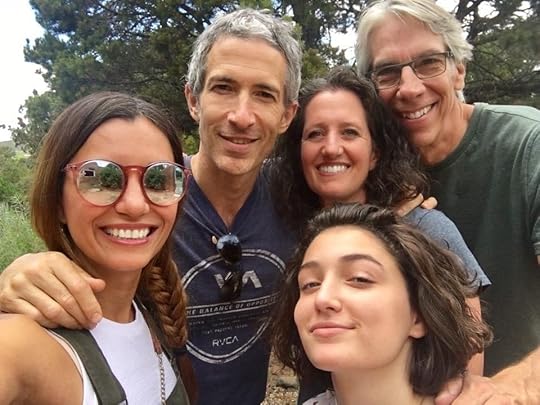 My Friends. While most of my friends are imaginary, I do have a handful of real-life cronies I’m very close with even though they live thousands of miles away. Unlike my imaginary ones, most of the real-life ones aren’t criminals. But I don’t hold that against them. They’re still good people, and I’m lucky to have them in my life. (I’d list their names here, but I don’t want them to undergo the scrutiny of the FBI or any other law enforcement agency just for being acquainted with the likes of me. See, I’m a good friend.)
My Friends. While most of my friends are imaginary, I do have a handful of real-life cronies I’m very close with even though they live thousands of miles away. Unlike my imaginary ones, most of the real-life ones aren’t criminals. But I don’t hold that against them. They’re still good people, and I’m lucky to have them in my life. (I’d list their names here, but I don’t want them to undergo the scrutiny of the FBI or any other law enforcement agency just for being acquainted with the likes of me. See, I’m a good friend.)
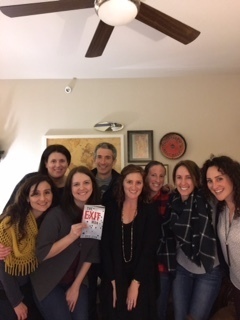 My Readers. Despite me not having put out a new novel in some time, I’m extremely fortunate to have a wonderful, loyal group of readers who can’t wait till I DO. And honestly, them buying my books isn’t even the best part of our relationship. The best part is knowing that each time I start a blog post or a newsletter intro or a short story, there’s people out there who give at least a little bit of a damn, folks who’ll “listen” to the words bleeding from my fingertips. Many writers claim, “I write for myself.” Well, they’re lying. For they, just like me, live for having others peruse their personal thoughts and ideas and creative outbursts, their shameless self-promotion, their wild rants, their cries for help.
My Readers. Despite me not having put out a new novel in some time, I’m extremely fortunate to have a wonderful, loyal group of readers who can’t wait till I DO. And honestly, them buying my books isn’t even the best part of our relationship. The best part is knowing that each time I start a blog post or a newsletter intro or a short story, there’s people out there who give at least a little bit of a damn, folks who’ll “listen” to the words bleeding from my fingertips. Many writers claim, “I write for myself.” Well, they’re lying. For they, just like me, live for having others peruse their personal thoughts and ideas and creative outbursts, their shameless self-promotion, their wild rants, their cries for help.
There are so many other things people could be doing or have to do that don’t involve reading a single word I write. So whenever someone lets me in—even if it’s through the tiniest sliver and for only a few moments here and there, I don’t take it for granted. And if you’re reading this, I can only assume you’re one of those someones. So, seriously, THANK YOU.
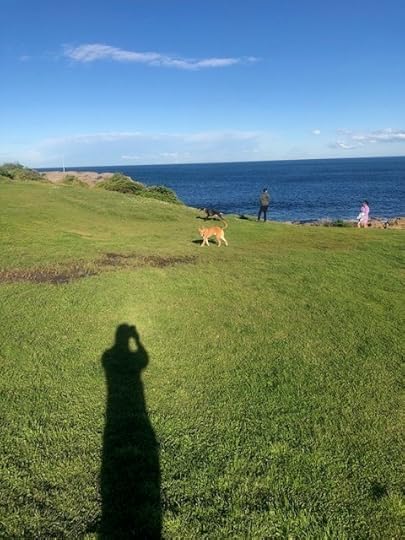 My Scenery. Sydney and the surrounding area—and, really, Australia in general—is ridiculously, stunningly, almost obscenely beautiful. I’ve been here a full six months, and rarely does a day go by that my jaw doesn’t drop at the sight of some seaside cliff or coastal sunrise/sunset or impossibly colorful bird or flowering tree.
My Scenery. Sydney and the surrounding area—and, really, Australia in general—is ridiculously, stunningly, almost obscenely beautiful. I’ve been here a full six months, and rarely does a day go by that my jaw doesn’t drop at the sight of some seaside cliff or coastal sunrise/sunset or impossibly colorful bird or flowering tree.
You have two primary choices in the treatment of anxiety and depression around these parts: 1) take medication; or 2) just step outside and open your eyes.
Whether or not you celebrate Thanksgiving, here’s hoping the things you have to be grateful for far, far outweigh whatever you may be struggling with.
October 13, 2021
The Five Stages of Rejection Grief
Most people are familiar with “the five stages of grief” introduced by renowned Swiss-American psychiatrist Dr. Elisabeth Kübler-Ross in her groundbreaking 1969 book, On Death and Dying. As a writer, I often think about death, dying and grief—to, you know, cheer myself up. And it recently dawned on me that the way Kübler-Ross described how humans deal with the loss of a loved one is quite similar to how writers deal with rejection. The thing is, though, loved ones die only once, where a manuscript can go on to die several dozen deaths.
So, yeah, being a writer is more tragic than being a human.
Now, I’m definitely not saying I would cry less over the death of a loved one than I would over my fiction getting rejected. And the reason I’m not saying that is some of my loved ones read this blog.
I’ve made my point. It’s time now to lighten the mood by taking a closer look at writerly death and pain. Below I apply the famed Kübler-Ross model to manuscript rejection and describe how the totally unbearable devastation a writer experiences upon being rejected eventually gets processed to become only mostly unbearable devastation.
STAGE 1: Denial. Upon learning their work has been rejected, the first thing a writer experiences is a strong sense of “there’s no way that actually happened.” This usually entails convincing themselves the agent or publisher they submitted their work to suffered a stroke in the midst of reading it, resulting in moderate to severe brain damage and rendering said agent/publisher susceptible to wildly irrational decisions. Denial may also take the form of the writer pretending they never even submitted their work to the person or entity in question, chalking up the whole rejection to the fact that the publishing world is undoubtedly conspiring against them.
STAGE 2: Anger. Once the denial starts to subside—which generally happens within a day or two of receiving the rejection but can last until the end of time—feelings of anger, resentment and even blind rage will move in and spoil the writer’s drinking binge. Most of this ire will be aimed at the person or publishing house that issued the rejection, but it’s not at all uncommon for the writer to (mis)direct a lot of anger at family, friends, neighbors, former English teachers, pets, traffic, anyone ahead of them in line at the supermarket, and, last but certainly not least, the universe.
Fortunately, such anger rarely if ever escalates into violence—unless the writer remains conscious during this stage.
STAGE 3: Bargaining. The anger following a rejection usually lasts only a day or so before the writer realizes all is not lost, so long as they remain desperate for validation and willing to blatantly lie to regain a sense of control. A typical scenario might feature a recently rejected writer promising God or the universe or their favorite stuffed animal that, if the manuscript in question is accepted soon, she or he will be a better person going forward—one who doesn’t alienate friends and family to write; one who doesn’t drink or do drugs or watch The Bachelor to escape their writing failures; one who does start to bathe regularly and occasionally wear pants. However, as with all psychological bargaining, such promises are innately impossible to keep.
STAGE 4: Depression. This stage can be difficult for friends and family of the writer to spot, as 97.3% of writers are depressed regardless of whether or not they’ve recently been rejected. Still, the depression that descends upon a writer following the bargaining stage is generally a big one—the kind that makes most writers consider giving up writing for good and taking a job at a sewage treatment facility as an unpaid intern, which, oddly enough, pays triple what fiction writing does. Additional telltale signs of rejection-based depression include:
sleeping in the same pajamas for weeks … in a public park; folding each page of the manuscript into pill-size and using them to replace previously prescribed antidepressants; pretending to have friends, then refusing to answer their calls.
STAGE 5: Acceptance. Rejection grief finally comes to an end during the acceptance stage—that is unless the writer gets confused and thinks the acceptance stage refers to their manuscript finally being accepted. Those writers—following several hours of intense joy and elation before learning the truth—are usually dead within a week. Fortunately though, such confusion occurs with only about 48% of writers, thus the majority of scribes survive the agony of rejection and go on to live long and unsuccessful lives.
I look forward to receiving your comments and thoughts about this piece, and to rejecting any that don’t perfectly align with my views.
September 15, 2021
First Annual Greg Levin Writing Awards (Recognizing Outstanding Achievements in Fiction by an Author Named Greg Levin)
The title of this post may seem a tad self-serving, a bit heavy on the ME, but hey, when you’re an author during a pandemic and you haven’t had a novel out in nearly four years, you desperately look for ways to celebrate your work.
Don’t worry, I’m not going to be tooting my horn too loudly or pressuring any of you to buy my existing books. I’m merely going to be presenting myself with numerous arbitrary, self-created awards to show you what you’re missing out on if you’ve never read any of my novels. This is totally normal behavior for an author … named Greg Levin.
My goal is really just to have a little fun and elicit a little laughter during these turbulent times. In other words, please buy my books.
So, without further ado or any more poorly veiled attempts at marketing, let’s get started with the First Annual Greg Levin Writing Awards (Recognizing Outstanding Achievements in Fiction by an Author Named Greg Levin).
Best Line in a Scene Featuring Voluntary Euthanasia:
And the winner is…
The Exit Man—for the following line:
“There’s nothing quite like a perfectly executed suicide to get you feeling right again.”—Eli Edelmann, from The Exit Man
Best Performance by a Character Pretending to Be a Globetrotting Pedophile to Capture Globetrotting Pedophiles:
And the winner is…
Zero Slade, from In Wolves’ Clothing:
“The trick to looking excited when children are presented to you for sex is to remember you are saving their lives. If you don’t look excited, the pimps will get suspicious. Show your anger and disgust, and you ruin everything. For help getting into character, think about the biggest douchebag frat guy you’ve ever met, imagine him with several million dollars, multiply his money and demeanor by ten, and then act like that guy. Right up until the cops remove your handcuffs and thank you for your service.”
Best Conversation Among a Group of Terminally Ill Vigilante Serial Killers:
And the winner is…
Ellison’s eyes opened almost as wide as his mouth. “Wait, you mean you guys are behind the two cyanide incidents that were just in the news?”
“Yes, that would be us,” Jenna replied.
“Jesus Christ. I thought maybe you had gotten the idea from the news, I didn’t realize you were the news.”
“Neither does anyone else,” said Jenna.
“How long do you think THAT will last?” Ellison asked.
“We don’t know, but considering our health, it doesn’t have to last too long.”
“Yeah, fear of getting caught isn’t much of an inhibitor with us,” said Gage, who’d been sitting at the table waiting for an opening. “We aim to keep this up as long as we’re still standing.”
Ellison glared at Gage. “Jenna mentioned you ‘succeeded’ in your lone attempt, so I suppose that means I’m talking to a murderer right now?”
"Can you please stop behaving like we're going to be alive in two years, Ellison?” Jenna asked, rolling her eyes. “You have to put these poisonings into context. You're not seeing the big picture."
“Yeah, you're making it sound like we're the bad guys,” said Gage. "We're in a unique position. I mean, think about it, we have an extraordinary opportunity here. Becoming killers could have a real positive impact in the community.”
Best Scene Featuring a Buddhist Getting Trained for an Undercover Sex Trafficking Sting Operation:
And the winner is…
In Wolves’ Clothing—for the following scene:
Three minutes into the video, I glance at Caleb. He’s fully engrossed in what he’s watching. And what he’s watching is a nine-year-old from Myanmar lying in a hospital cot a day after having her dislocated jaw wired shut.
Five minutes in, Caleb is quietly jotting down notes as a pimp caught on a hidden phone camera is bragging about how many virgins he’s able to bring to the next night’s party.
At the ten-minute mark, as the video is ending, Caleb closes his eyes and takes several deep breaths.
I’ve seen this before with trainees.
“It’s okay, man,” I say as I pat him on the back. “Should I grab the trash bin?”
With his eyes still shut, Caleb says, “I’m good” and continues breathing deeply.
“It’s okay, man. No shame. What you just watched is too much for most people.”
Caleb says nothing. Just long inhales followed by longer exhales. Hands in his lap. He looks too serene to vomit, but I get up and grab the bin from the corner anyway and place it by his chair.
“Do you need anything else?” I ask, wondering how I’m going to break it to Fynn that her golden boy isn’t cut out for the job.
Caleb takes a couple more deep breaths, and opens his eyes. He says, “My apologies, I was just—”
“No need to apologize,” I say. “We can take a break if you want.”
He shakes his head and goes, “That won’t be necessary. I just needed to get that little meditation out of the way. You know, send my intention out into the universe.”
Now it’s me who might need the trash bin.
Caleb points at my laptop screen and says, “Those traffickers are in pain, and they haven’t learned how to respond to that pain with mercy and empathy.”
He says, “The intention I sent out was for them to recognize this. To help them ease their suffering, and that of the girls.”
Oh shit.
It’s more serious than I suspected.
Caleb isn’t an alcoholic or a drug addict or suffering from PTSD. He isn’t depressed or bipolar or a masochist.
He’s a Buddhist.
I can overlook a lot of shit in a Jump Team member, but total enlightenment may be where I have to draw the line.
Best Author of a Novel by Greg Levin:
And the winner is…
No way—ME?! I’m shocked and honored. I’m humbled and grateful. Most importantly, I’m calling to make an appointment with a psychiatrist.
Best Protagonist of a Novel by Greg Levin:
And the winner is…
It’s a three-way tie! Eli Edelmann from The Exit Man; Gage Adder from Sick to Death; Zero Slade from In Wolves’ Clothing.
Best Novel by Greg Levin:
And the winner is…
Get outa town—another three-way tie! The Exit Man, Sick to Death, and In Wolves’ Clothing.
Wow! I’ve never been so honored or so proud or so concerned about my mental health. These awards truly are an embarrassment of riches—or as my father is probably thinking, just an embarrassment.



